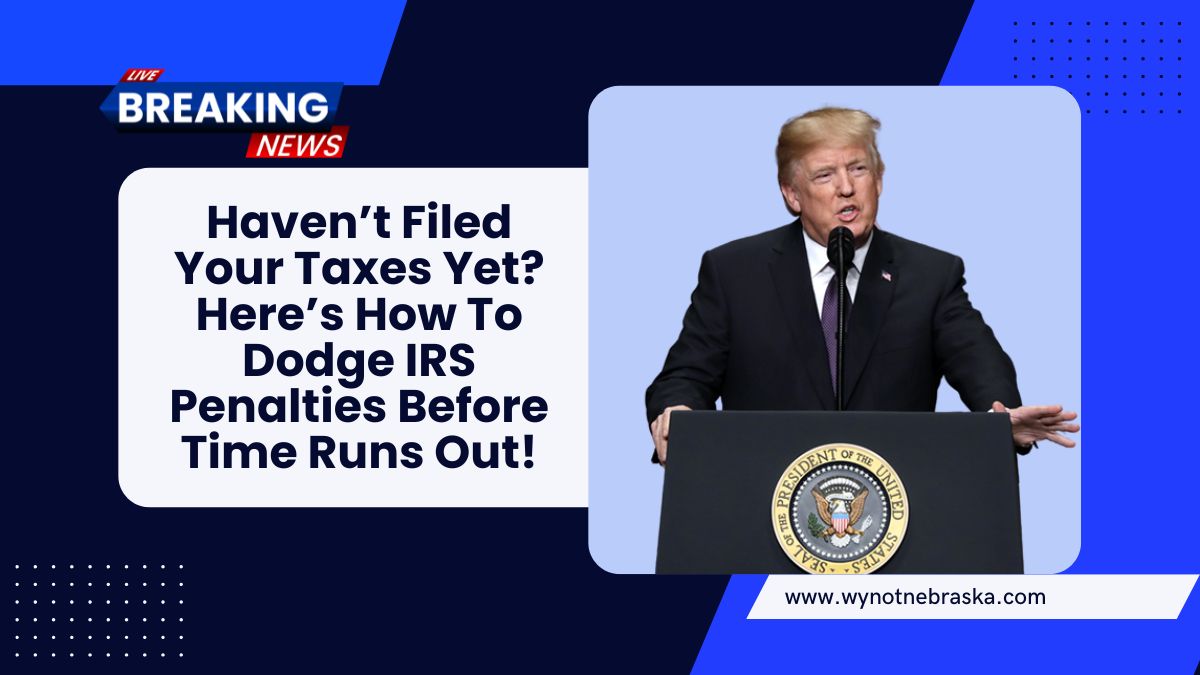The IRS 2025 tax filing deadline was April 15, 2025. If you haven’t filed yet, time is critical. Missing the deadline can trigger heavy IRS penalties and interest charges that quickly snowball. Fortunately, there are still ways to reduce the damage if you act immediately.
Understanding the penalties and knowing how to avoid additional fees can save you hundreds, even thousands, of dollars.
How IRS Penalties Work: Know What’s at Stake
Failing to file or pay your taxes on time can lead to two primary penalties:
Failure-to-File Penalty
- Rate: 5% of the unpaid taxes for each month (or part of a month) your return is late.
- Maximum: Caps at 25% of your unpaid taxes.
- Minimum: If the return is more than 60 days late, a minimum penalty of $510 or 100% of your tax due (whichever is less) applies.
Failure-to-Pay Penalty
- Rate: 0.5% of your unpaid taxes for each month (or part of a month) after the due date.
- Increases to 1% if you fail to pay within 10 days after the IRS issues a notice of intent to levy.
Combined Penalty
When both penalties apply in the same month, the failure-to-file penalty is reduced by the failure-to-pay penalty, resulting in a combined 5% per month.
IRS Penalties Overview
| Penalty Type | Monthly Rate | Maximum Penalty | Key Details |
|---|---|---|---|
| Failure-to-File | 5% | 25% | Minimum $510 if over 60 days late |
| Failure-to-Pay | 0.5% (1% after levy notice) | 25% | Higher rate after IRS collection notice |
| Combined Penalties | 5% | Up to 47.5% | Filing late with unpaid taxes |
How to Minimize or Avoid IRS Penalties
Here’s what you should do right now to protect your wallet:
1. File Your Tax Return Immediately
Even if you cannot pay the full amount, filing your tax return immediately stops the failure-to-file penalty, which is much higher than the failure-to-pay penalty.
2. Pay as Much as You Can
Partial payment reduces the amount of penalty and interest that continues to accrue. Even small payments make a difference.
3. Set Up a Payment Plan
The IRS offers payment plans. By applying for an installment agreement, you can reduce the failure-to-pay penalty from 0.5% to 0.25% per month.
4. Request Penalty Relief
If you have a legitimate reason — like a natural disaster, serious illness, or other hardship — you might qualify for penalty abatement or relief.
5. Avoid Further Delays
Each month you delay filing or payment leads to greater penalties and accrued interest. Filing sooner keeps your financial exposure to a minimum.
What If You Filed for an Extension?
If you filed an extension before April 15, 2025, you now have until October 15, 2025, to submit your completed tax return.
However, remember: an extension to file is not an extension to pay. You should have paid your estimated taxes by April 15 to avoid penalties. Any unpaid amounts after that date continue accruing penalties and interest.
Special Situation: If You Are Due a Refund
If you are owed a tax refund, there is no penalty for filing late. However, you must file within three years to claim your refund. After that, the money becomes property of the U.S. Treasury.
For example, for 2021 returns, you must file by May 17, 2025, to receive your refund. Don’t leave money on the table.
Key Takeaways to Act Fast
- File your return now to reduce penalties.
- Pay whatever you can to minimize additional charges.
- Arrange a payment plan if you cannot pay in full.
- Request relief if you have a valid reason for delay.
- Stay proactive to protect your financial standing.
The sooner you act, the less you will owe in penalties and interest.
If you haven’t filed your taxes yet, it’s essential to act immediately to avoid hefty IRS penalties and mounting interest. Filing now, paying what you can, setting up a payment plan, or seeking penalty relief can save you from severe financial consequences.
Every day matters — the longer you wait, the more costly the delay becomes. Don’t let late filing mistakes damage your finances when simple steps today can protect your future.
FAQs
What happens if I can’t pay my taxes all at once?
File your return anyway and pay as much as you can. Then, set up a payment plan to handle the rest. This reduces penalties significantly.
Can I still file an extension after April 15, 2025?
No, the extension request deadline was April 15. Now, you should focus on filing your return immediately to minimize penalties.
How do I know if I qualify for penalty relief?
If you had reasonable cause such as illness, disaster, or other serious circumstances, you may apply for penalty relief by contacting the IRS.

